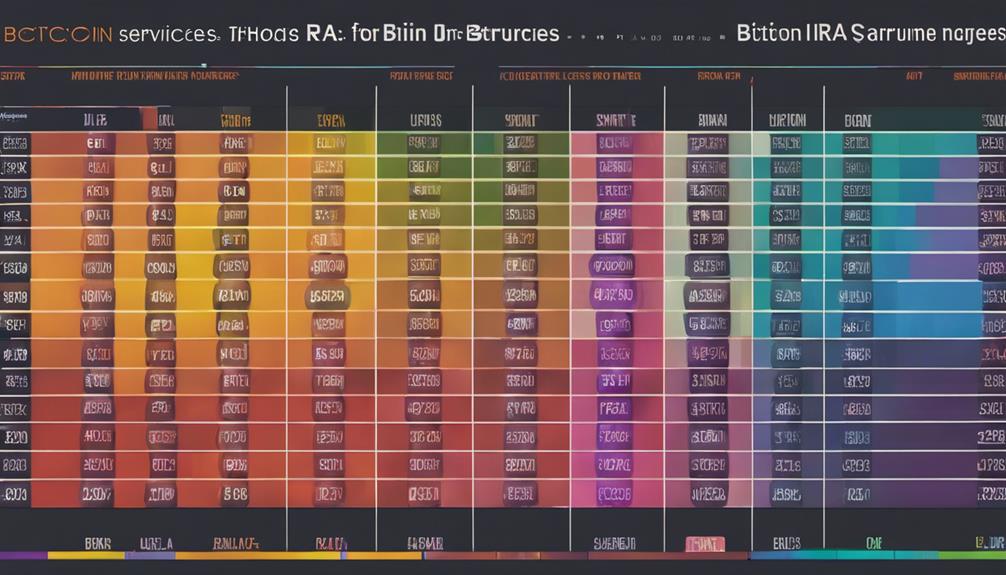You won't believe the scandal surrounding ex-Celsius CEO Alex Mashinsky. He recently confessed to orchestrating a massive fraud scheme that misled thousands of investors, costing them billions. Mashinsky made false claims about regulatory approvals and inflated the value of CEL tokens for personal profit. His misleading promises led to catastrophic financial losses, with customer losses estimated at $4.7 billion. Facing multiple counts of fraud, Mashinsky's guilty plea in December 2024 could lead to up to 30 years in prison. The fallout from this shocking confession has profound implications for the future of crypto. Discover what's next for investors.
Key Takeaways
- Ex-CEO Alex Mashinsky orchestrated a massive fraud scheme, misleading investors about Celsius' financial health and regulatory approvals.
- Investors lost an estimated $4.7 billion due to false promises of high yields and a nonexistent insurance policy.
- Mashinsky personally profited up to $48 million through market manipulation and deceptive practices involving CEL tokens.
- Legal repercussions include a guilty plea, potential prison time, and substantial financial penalties imposed by regulatory bodies.
- The scandal has intensified regulatory scrutiny on crypto lending platforms, leading to calls for greater transparency and accountability in the industry.
Mashinsky's Fraud Confession

Admitting to a web of deceit, Alex Mashinsky, the ex-CEO of Celsius, has confessed to orchestrating a massive fraud scheme that misled both customers and investors. He falsely claimed regulatory approval for Celsius' "Earn" program, leading you to believe your investments were safe.
By giving you a sense of security with misleading statements and catchy slogans like "Unbank Yourself," he created a false narrative around the success of his business model. This plea deal highlights the serious consequences for executives engaging in fraudulent activities.
Mistrust grew as he failed to disclose significant risks and the true financial health of Celsius. Meanwhile, he engaged in market manipulation, artificially inflating the price of CEL tokens through buybacks and secretly selling his own tokens at inflated prices, pocketing around $42-48 million.
You were left in the dark while he used customer funds to prop up CEL's value, all while personally profiting.
This confession reveals how he prioritized his own gain over your trust, withdrawing significant sums before the bankruptcy. His actions have consequences, and the fallout from this scandal will likely reshape your understanding of investment safety in the crypto space.
Charges and Plea Details

Following his shocking confession, Alex Mashinsky now faces serious legal repercussions for his fraudulent actions. Initially arrested in July 2023, he was charged with multiple counts, including commodities and securities fraud. The charges stem from misleading customers about Celsius' success and manipulating the price of CEL tokens.
On December 3, 2024, Mashinsky entered a guilty plea in a New York federal court, a significant shift from his original not guilty stance. By accepting full responsibility for his actions, he hopes to mitigate some of the legal fallout.
Here are some key details about the charges and plea:
- Charges filed: One count of commodities fraud, one count of securities fraud, among others.
- Financial consequences: Over $48 million forfeited and assets frozen by the Department of Justice.
- Sentencing: Scheduled for April 8, 2025, with potential prison time of up to 30 years. Additionally, the collapse of Celsius has raised concerns about the stability of the crypto market, highlighting the need for greater accountability from industry leaders.
As Mashinsky's case unfolds, the implications of his actions will likely resonate throughout the cryptocurrency community, raising questions about accountability in the industry.
Inside the Fraudulent Activities

You're about to uncover the disturbing tactics used in the Celsius scandal, which includes manipulating CEL token prices for personal gain.
The ex-boss misled regulators and customers alike, creating a façade of safety while pocketing millions. His actions ultimately led to the company's bankruptcy in 2022, leaving many investors in financial ruin.
As you explore these fraudulent activities, it's clear that greed drove actions that ultimately harmed countless investors.
Price Manipulation Tactics
Price manipulation tactics at Celsius were a calculated betrayal of investor trust, designed to create a façade of stability around the CEL token. By employing various deceptive strategies, the management misled investors into believing they were making sound financial decisions. The manipulation went beyond just market tactics; it involved a web of false promises and misrepresentations.
Here are some of the tactics used:
- Pump and dump schemes: Inflating the price through misleading information to attract unsuspecting investors.
- Spoofing: Creating false market signals by placing large fake orders to generate unwarranted confidence.
- Wash trading: Trading with oneself to fabricate the illusion of genuine market activity.
These actions led to an artificially high CEL token price, which ultimately provided a false sense of security for Celsius customers. Meanwhile, Mashinsky sold his CEL holdings despite his assurances, exacerbating the distrust. The manipulation not only misallocated consumer deposits but also contributed to the company's dramatic downfall, leaving investors with significant financial losses. The collapse of Celsius Network and the subsequent DOJ inquiry revealed the extent of the fraudulent activities perpetrated by Mashinsky.
Misleading Regulatory Claims
Throughout its operations, Celsius made a series of misleading regulatory claims that created a false sense of security among its customers. The company suggested it had received regulatory approvals, which simply wasn't true, giving you a false comfort in the platform's legitimacy.
Public statements from Mashinsky, including interviews and social media posts, echoed these claims, reinforcing a deceptive narrative of compliance.
In weekly 'Ask Mashinsky Anything' sessions, misleading information was routinely shared, further obscuring the truth. Celsius misrepresented its adherence to regulatory requirements to attract and retain customers, all while claiming that your assets were safer than those in traditional banks.
They touted billions in liquidity and a $750 million insurance policy, which turned out to be misleading. Additionally, the company had hundreds of thousands of customers holding ~$4.7 billion in crypto during bankruptcy, highlighting the extent of the impact on its users.
You were told you could withdraw your crypto at any time, but insufficient reserves made that impossible. Moreover, the risk profile of investments was falsely represented, masking the true extent of leverage and risk.
Unfortunately, these misrepresentations led to severe consequences, including lawsuits and a devastating bankruptcy, leaving many customers reeling from significant losses.
Financial Gains From Fraud
Celsius capitalized on fraudulent activities to generate substantial financial gains, systematically misleading investors while reaping the rewards. By offering the Earn Interest Program without proper registration, they evaded vital federal laws, leaving investors exposed and unprotected. This unregistered securities offering allowed them to attract funds without transparency, ultimately leading to significant financial hardship for countless individuals. Furthermore, the SEC claims that this program constituted an unregistered offering, further highlighting the lack of legal compliance.
Moreover, false financial representations painted a rosy picture of the company's health, luring investors with misleading claims about safety and risk. This deception concealed the real losses and high-risk ventures that could have prompted investors to think twice.
To further bolster their financial position, Celsius engaged in market manipulation, artificially inflating the price of their CEL tokens. This manipulation not only benefitted insiders like Mashinsky but also created an illusion of demand that misled the market.
- Unregistered securities deprived investors of legal protections.
- False statements concealed financial risks, leading to investor losses.
- Market manipulation allowed insiders to profit at investors' expense.
The fallout from these actions was catastrophic, leaving a trail of financial ruin and shattered lives.
Impact on Customers and Investors

For countless customers and investors, the fallout from the Celsius scandal has been devastating. You may have lost a significant portion of your savings, with overall customer losses estimated at a staggering $4.7 billion. Many investors, including over 26,000 New Yorkers, were misled into believing their assets were safe, only to find out that high yields of up to 18% APY came without any real backing.
The deception didn't stop there. Celsius executives falsely claimed a $750 million insurance policy for deposits, which never existed, and hid the company's declining financial health. You might be among those who lost life savings, retirement funds, or even college savings, with heartbreaking stories surfacing, like a disabled veteran losing $36,000 after nearly a decade of saving. Furthermore, the ongoing legal actions against former executives remain unsettled, emphasizing the importance of understanding unique risks associated with digital assets.
Legal repercussions are heating up, with the FTC imposing a $4.7 billion judgment and lawsuits against former CEO Alex Mashinsky. While a restructuring plan aims to return assets, many are left wondering if they'll ever see their investments again.
As you navigate this uncertain landscape, it's clear the impact on customers and investors is profound and ongoing.
Celsius's Business Model Explained

The fallout from the scandal has left many questioning how Celsius operated and what went wrong. At its core, Celsius's business model revolved around crypto collateral loans, allowing you to borrow USD against your crypto holdings without having to sell them. Loans were secured by your assets and charged interest rates below 10%.
You could also earn interest on your deposited crypto assets, with rates reaching up to 9%. These earnings were vital in maintaining the lending ecosystem and supporting community growth. In addition, the platform was marketed as a modern bank for crypto asset deposits, appealing to users looking for a safe haven in the volatile crypto market.
Their technological infrastructure featured multi-blockchain nodes and smart contracts, which guaranteed a seamless user experience and transparency.
Here's a quick overview of Celsius's business model:
- Crypto Collateral Loans: Low-interest loans secured by crypto assets.
- Interest Earnings: Earn interest on deposits, paid in Celsius Tokens (CEL).
- Dual-Sided Marketplace: A platform for both institutional traders and global crypto holders.
Celsius aimed to replace traditional financial systems and foster a thriving crypto community. However, the recent scandal has raised serious doubts about the sustainability and ethics of these operations.
Regulatory and Legal Actions

Amidst the fallout from the scandal, regulatory bodies have taken significant action against the former leadership of Celsius. The Commodity Futures Trading Commission (CFTC) filed a complaint against Alexander Mashinsky and Celsius Network, alleging fraud and material misrepresentations. They operated as an unregistered commodity pool operator and misled customers about the safety and profitability of the platform from 2018 to June 2022.
This deception led customers to deposit around $20 billion based on false promises. The CFTC's case marks its first enforcement action against a digital asset lending platform, emphasizing the need for regulatory oversight in this evolving market.
The SEC also charged Celsius and Mashinsky for violating federal securities laws, citing failure to register their Earn Interest Program and making misleading statements to investors. They seek injunctions, civil penalties, and disgorgement of profits, with Celsius consenting to a permanent injunction against future violations.
Furthermore, the FTC reached a settlement permanently banning Celsius from handling consumer assets, charging Mashinsky and others with tricking consumers into transferring cryptocurrency. The FTC imposed a judgment of $4.7 billion, suspended to allow asset returns in bankruptcy.
With Mashinsky pleading guilty to fraud, these regulatory actions underline the severe consequences of Celsius's fraudulent activities, leaving consumers reeling from significant financial losses.
Bankruptcy Proceedings Overview

Celsius's bankruptcy proceedings began with a dramatic filing on July 14, 2022, as the company faced a dire financial situation, reporting $4.7 billion in customer assets against just $167 million in liquidity.
The company cited "extreme market conditions" as the reason for halting operations, which impacted hundreds of thousands of customers who'd funds on the platform. Following the filing, Alex Mashinsky resigned as CEO in September 2022.
In November 2023, the bankruptcy court confirmed Celsius' Chapter 11 plan, allowing for a structured reorganization. This ruling established that Celsius owns retail borrowers' crypto, emphasizing the importance of understanding ownership rights.
The plan involved distributing liquid cryptocurrency to account holders and creating a new entity, NewCo, to manage illiquid assets. An impressive 98% of creditors voted in favor of this reorganization plan.
As distributions began in January 2024, customers received a combination of cryptocurrency and stock in NewCo, with creditors recovering about 60% of their initial losses.
This marked the end of an 18-month process filled with complex legal hurdles.
- Over $3 billion in distributions initiated in January 2024.
- NewCo aims to manage Celsius' illiquid assets.
- The plan was confirmed by the Bankruptcy Court for the Southern District of New York.
Asset Ownership Controversies

Numerous controversies have arisen regarding the ownership of cryptocurrency within Celsius's Earn accounts and as collateral for loans. When you deposited digital assets into the Earn program, you unknowingly transferred ownership to Celsius, as outlined in the Terms of Use. This agreement clearly stated that Celsius would hold all rights and title to your assets, allowing them to use, pledge, or sell your cryptocurrency. The court's ruling that customers do not own cryptocurrency deposited with Celsius Network reinforces this legal principle.
Similarly, if you used your cryptocurrency as collateral for loans, the Loan Terms and Conditions also transferred ownership to Celsius, treating it as a sale. This meant that once you provided collateral, you no longer retained title to those digital assets.
As a result, you're now considered an unsecured creditor in the bankruptcy proceedings. The court's rulings emphasize that the language in these agreements leaves little room for interpretation, making it essential for you to understand the implications of these contracts on your asset recovery.
Unfortunately, accessing your assets could be delayed until preference claims are resolved.
Financial Losses and Recovery

The staggering financial losses suffered by customers have left many grappling with the harsh reality of their investments. Around $4.7 billion in crypto assets vanished, and promises of low-risk, high-yield returns have turned into nightmares for countless investors. In times of financial distress, it's essential to recognize the importance of emotional expression as a way to cope with the overwhelming feelings that arise from such losses. Establishing an emergency fund can also provide a buffer against future financial shocks. Additionally, understanding the concept of credit scores is crucial since a poor credit score can limit future financial opportunities.
You might've heard stories of individuals mortgaging their homes or losing life savings, like the disabled veteran who lost $36,000. In light of these events, New York Attorney General Letitia James has taken action against bad actors in the cryptocurrency market, including the former CEO of Celsius.
Despite Celsius once boasting $25 billion in assets, the company was never profitable and engaged in high-risk strategies that led to its downfall. Misleading claims about user numbers and asset safety exacerbated the situation, trapping many in a web of deception. Many investors might have benefited from understanding the importance of IRA inheritance rules to protect their assets effectively.
As customers navigate the bankruptcy proceedings, most are now regarded as unsecured creditors, making recovery unlikely. Distributions began in January 2024, but you're only receiving 60% of your initial losses.
Here are some key points to reflect upon:
- Celsius's collapse exposed many to devastating financial ruin.
- The bankruptcy court has confirmed a reorganization plan into digital mining.
- The recovery process is slow, leaving many unsatisfied and uncertain.
The road to recovery is rocky, and many feel they're left holding the bag.
Future Implications for Crypto Industry

Facing increased regulatory scrutiny and a shaken market, the future of the crypto industry hangs in the balance. With bodies like the FTC, SEC, and CFTC ramping up oversight, you can expect stricter regulations aimed at protecting consumers and investors. This shift means crypto lending platforms will face heightened scrutiny, forcing them to rethink their business models. Moreover, the recent settlement with Celsius Network, which involved a $4.7 billion judgment, underscores the need for accountability in financial technologies. In this evolving landscape, the integration of automation in decision-making will be crucial for compliance and risk management. Additionally, the implementation of penetration testing could help identify vulnerabilities in these platforms. As companies leverage intelligent tutoring systems for training purposes, they can better prepare their teams to navigate these complex regulatory environments.
The recent scandals have eroded trust in the sector, leading to a domino effect that threatens overall market stability. You might experience increased volatility as regulatory actions unfold, making it essential for platforms to prioritize transparency and honesty to rebuild confidence among investors. Additionally, the push for renewable energy sources in various sectors could enhance the credibility of crypto mining operations by addressing environmental concerns. As the situation unfolds, the rise of alternative investments like Gold IRAs may attract investors seeking stability.
Legal actions are already underway, with criminal and civil charges against executives for fraud. This not only highlights the urgency for compliance with securities laws but also sets a precedent for future enforcement. Ethical hackers are increasingly being relied upon to assess and improve the security of financial technologies. These proactive measures aim to safeguard investors and restore trust in the financial system amid growing concerns about cybersecurity vulnerabilities. Recent investigations have even uncovered ties to Russian moneylaundering empire secrets, shedding light on the intricate networks that exploit gaps in regulatory frameworks. As authorities intensify their scrutiny, businesses are under mounting pressure to tighten internal controls and enhance transparency to avoid similar scandals.
Expect ongoing investigations to shape industry standards, emphasizing better risk management and communication about investment risks.
Ultimately, the crypto industry must adapt to these challenges. By embracing enhanced security measures and compliance with financial regulations, platforms can work toward restoring trust and ensuring a more stable future for cryptocurrency investments.
Frequently Asked Questions
What Motivated Mashinsky to Change His Plea to Guilty?
Mashinsky likely changed his plea to guilty due to overwhelming evidence against him and the increasing pressure from public scrutiny.
With the trial date approaching and his former Chief Revenue Officer cooperating with the prosecution, he faced a tough battle.
The hefty financial implications, including forfeiting over $49 million, also played a role in his decision.
Ultimately, he probably saw a guilty plea as a strategic move to mitigate potential consequences.
How Will Sentencing Impact Mashinsky's Financial Assets?
Sentencing's like a storm cloud looming over Mashinsky's financial landscape.
With a potential 30-year prison term and hefty civil penalties, his assets will likely dwindle.
You'll see a permanent ban on him handling consumers' money, which means he can't rebuild his fortune through those channels.
The SEC's demands for disgorgement and restitution might just sweep away the remnants of his wealth, leaving him with little to weather the aftermath.
What Measures Are Being Taken to Protect Future Investors?
To protect future investors, regulatory bodies are tightening oversight of crypto-asset trading platforms.
In Canada, platforms must now meet pre-registration requirements that guarantee custody and segregation of assets.
The SEC in the U.S. mandates registration for certain cryptocurrencies, enhancing compliance.
You're encouraged to consult lists of registered platforms and understand crypto fundamentals.
Additionally, educational initiatives aim to inform you about risks, promoting transparency and informed decision-making in your investments.
Will Celsius Customers Receive Any Compensation Post-Bankruptcy?
While bankruptcy often spells doom for customers, there's a glimmer of hope for Celsius users.
You'll need to file a proof of claim to secure your interest, as repayments are expected to start in early 2024.
However, keep in mind that you're classified as a general unsecured creditor, meaning your compensation will come after secured creditors.
How Has This Scandal Affected the Overall Crypto Market?
The Celsius scandal's shaken the entire crypto market, leading you and many others to question the reliability of centralized platforms.
Trust has eroded considerably, prompting a mass exodus to hardware wallets as you seek safer storage options.
As prices for major cryptocurrencies plummeted, regulatory bodies intensified their scrutiny, affecting how investors approach the market.
The incident illustrates the potential dangers of high-yield crypto investments, leaving lasting impressions on your investment strategies.
Conclusion
As the dust settles from Mashinsky's shocking confession, the crypto landscape feels like a shattered mirror, reflecting the shattered trust of thousands. You can almost hear the whispers of lost investments echoing through empty wallets. Celsius's downfall serves as a stark warning, a reminder that in this digital gold rush, the allure of quick riches can cloud judgment. The future of crypto now hangs in the balance, a fragile thread woven through the lessons learned from this scandal.









